As a parent, you want the best for your child's development. You've probably noticed that most activities focus on just one area - sports for physical fitness, tutoring for academics, or art classes for creativity. But what if there was a single activity that could develop your child's emotional intelligence, social skills, intellectual capacity, and physical abilities all at once?
Free karate classes at Mastery Martial Arts provide a comprehensive approach to child development. While many parents initially think of martial arts as simply learning to punch and kick, the reality is far more profound. Research shows that quality martial arts programs, such as those at Mastery Martial Arts, create well-rounded children who excel in all areas of life, from the classroom to the playground and into their future careers.
In this comprehensive guide, we'll explore how free karate classes at Mastery Martial Arts go far beyond basic self-defense techniques to nurture four critical areas of your child's development: emotional regulation, social competence, intellectual growth, and physical wellness. You'll discover why thousands of parents have chosen Mastery Martial Arts as their solution for raising confident, disciplined, and successful children.
Most importantly, you'll learn how you can get started today with a completely free 1-on-1 introductory lesson and two weeks of unlimited classes - no strings attached, no pressure, just the opportunity to see firsthand how martial arts can transform your child's potential.
Listen to this article on our podcast:
The Hidden Crisis:
Why Traditional Activities Leave Gaps in Your Child's Development
Many well-meaning parents find themselves shuttling their children between multiple activities, hoping to cover all the bases of healthy development. Soccer practice for physical fitness, piano lessons for discipline, tutoring for academic support, and playdates for social interaction. Yet despite this packed schedule, something crucial is missing - a unified approach that develops the whole child.
Traditional team sports, while excellent for physical development, often create intense pressure and competition that can damage a child's self-esteem. When your child makes a mistake that costs the team a game, they experience the weight of letting others down. This pressure can be particularly harmful for children who are naturally shy, less athletically gifted, or still developing their coordination skills.
Academic-focused activities like tutoring or enrichment classes certainly support intellectual growth, but they typically ignore the physical and social aspects of development. Children spend hours sitting still, focusing on cognitive tasks while their bodies remain inactive and their social skills underdeveloped. This imbalance can lead to restlessness, difficulty with peer relationships, and a disconnect between mind and body.
Even creative activities like art or music, while valuable for self-expression, usually operate in isolation from physical development and may not provide the structured social interaction children need to develop leadership skills, conflict resolution abilities, and respect for others.
Perhaps most concerning is the impact of our screen-dominated culture on child development. The average child now spends over seven hours per day looking at screens, leading to decreased attention spans, reduced physical activity, and limited face-to-face social interaction. Traditional activities often fail to address these modern challenges comprehensively.
What children truly need is an activity that integrates all aspects of development while providing the structure, discipline, and positive reinforcement necessary for healthy growth. This is exactly what free karate classes at Mastery Martial Arts provide - a holistic approach that addresses the complete child, not just isolated skills or abilities.

Beyond Punching and Kicking:
The 4 Pillars of Development at Mastery Martial Arts
Pillar 1: Emotional Development - Building Inner Strength and Self-Control
The most profound transformation parents witness in their children at Mastery Martial Arts isn't physical - it's emotional. Free karate classes offer a unique opportunity to develop emotional intelligence, self-regulation, and inner confidence, skills that benefit children throughout their lives.
Self-Control and Emotional Regulation
Every technique in karate requires precise control. Children cannot simply flail their arms and legs; they must learn to channel their energy with purpose and restraint. This physical discipline directly translates to emotional discipline. When a child learns to control their body movements, they simultaneously develop the neural pathways necessary for controlling their emotional responses.
During sparring exercises, children experience frustration when techniques don't work as expected. Rather than allowing emotional outbursts, instructors at Mastery Martial Arts guide students through breathing techniques and mental reset strategies. The "ready stance" - a fundamental position in karate - becomes more than a physical posture; it's a mental state of calm alertness that children learn to access whenever they feel overwhelmed.
Parents consistently report that their children become less reactive to everyday stressors after just a few weeks of training. The child who once had meltdowns over homework difficulties learns to pause, breathe, and approach challenges with a calm mind. This emotional regulation skill proves invaluable in academic settings, social situations, and family interactions.
Confidence Building Through Progressive Achievement
Unlike team sports, where success depends on beating others, karate focuses on personal improvement and individual achievement. The belt ranking system at Mastery Martial Arts provides clear, attainable goals that build confidence incrementally. Each colored belt represents mastery of specific skills, and children advance at their own pace without the pressure of keeping up with teammates or the disappointment of being cut from a team.
This approach is particularly beneficial for children who struggle with self-esteem issues. The shy child who feels invisible in group settings discovers their inner strength through martial arts. The child who has been bullied learns to carry themselves with quiet confidence that deters future harassment. The perfectionist child learns that mistakes are part of the learning process, not failures to be ashamed of.
Resilience and Stress Management
Karate training inherently involves facing challenges and overcoming obstacles. Children learn that falling down - literally and figuratively - is not the end of the story. When a student struggles to master a new technique, instructors at Mastery Martial Arts teach them to view the difficulty as an opportunity for growth rather than a reason to quit.
This resilience training extends far beyond the dojo. Children who have learned to persist through challenging karate techniques approach academic difficulties with the same determination. They understand that effort and practice lead to improvement, developing what psychologists call a "growth mindset" that serves them throughout their educational journey and beyond.
The stress management techniques learned in karate - controlled breathing, mental focus, and physical release of tension - provide children with healthy coping mechanisms for life's inevitable challenges. Rather than turning to unhealthy outlets when stressed, children learn to channel their energy constructively through martial arts principles.
Pillar 2: Social Development - Creating Leaders and Team Players
While karate might appear to be an individual activity, the social development that occurs in free karate classes at Mastery Martial Arts is remarkable. The dojo environment creates a unique social laboratory where children learn essential interpersonal skills in a structured, supportive setting.
Respect as the Foundation of All Interactions
Respect is not just taught at Mastery Martial Arts - it's lived and breathed in every interaction. Children learn to bow to their instructors and fellow students, not as a meaningless ritual, but as a genuine expression of mutual respect and appreciation. This simple act teaches children to acknowledge the worth and dignity of others, regardless of age, skill level, or background.
The respect principle extends to how children interact with one another. Negative comments, put-downs, and unsportsmanlike behavior are not tolerated in the dojo. Instead, children learn to offer encouragement to struggling classmates and celebrate others' successes genuinely. This creates an environment where every child feels valued and supported, regardless of their natural athletic ability or learning pace.
Parents often notice that this respectful behavior transfers to home and school settings. Children who learn to speak respectfully to their karate instructors begin addressing their teachers and parents with the same courtesy. The child who learns to wait patiently for their turn in karate class develops better classroom behavior and improved relationships with siblings.
Teamwork Without Competition Pressure
One of the most significant advantages of karate over traditional team sports is the way it develops teamwork skills without the pressure of competition. In free karate classes at Mastery Martial Arts, children work together as partners during training exercises, helping each other learn new techniques and providing mutual support during challenging drills.
This collaborative approach teaches children that success doesn't require defeating others. Instead, they learn that everyone can succeed when they support each other's growth. Advanced students are paired with beginners, creating natural mentoring relationships where older children develop leadership skills while younger students receive personalized guidance and encouragement.
The partner-based training exercises require children to communicate clearly, listen actively, and adjust their approach based on their partner's needs. These communication skills prove invaluable in academic group projects, family discussions, and future workplace collaborations.
Leadership Development and Conflict Resolution
As children advance in their karate training, they naturally take on leadership roles within the dojo community. Senior students help teach newer members, developing their ability to explain concepts clearly, demonstrate patience with those who learn differently, and take responsibility for others' success.
This leadership development is particularly valuable for children who might not have opportunities to lead in other settings. The quiet, thoughtful child who doesn't make the sports team captain discovers their natural teaching ability in karate. The child who struggles academically finds confidence in helping others master physical techniques they've already learned.
Conflict resolution skills develop naturally in the dojo environment. When disagreements arise during partner exercises or sparring sessions, instructors guide children through productive problem-solving processes. Children learn to express their concerns respectfully, listen to others' perspectives, and find mutually acceptable solutions. These skills prove invaluable in playground disputes, sibling conflicts, and future relationship challenges.
Building Lasting Friendships Across Differences
The inclusive nature of karate training creates friendships that might never form in other settings. Children of different ages, backgrounds, and ability levels train together as equals, united by their shared commitment to learning and improvement. The shy child finds acceptance among peers who value effort over natural talent. The child with learning differences discovers friends who appreciate their unique strengths and perspectives.
These friendships often extend beyond the dojo, creating a supportive social network that enhances children's overall well-being. Parents frequently report that their children's karate friends become some of their closest and most positive influences, providing peer support for making good decisions and adopting healthy lifestyle choices.

Pillar 3: Intellectual Development - Sharpening the Mind Through Movement
The intellectual benefits of free karate classes at Mastery Martial Arts often surprise parents who initially view martial arts as purely a physical activity. However, research consistently demonstrates that martial arts training enhances cognitive function, academic performance, and intellectual development in ways that traditional academic activities cannot match.
Enhanced Focus and Concentration
Attention is central to every aspect of karate training. Children must focus intently on their instructor's demonstrations, remember complex sequences of movements, and maintain awareness of their body position and technique execution. This sustained attention training strengthens the same neural pathways responsible for academic focus and classroom concentration.
Unlike passive activities where children can let their minds wander, karate demands active, engaged attention. When a child's focus drifts during technique practice, the immediate feedback is obvious - their technique suffers, and they must refocus to improve. This creates a natural training ground for developing sustained attention skills that transfer directly to homework completion, test-taking, and classroom participation.
Parents consistently report dramatic improvements in their children's ability to focus on academic tasks after beginning karate training. The child who previously couldn't sit still for homework completion learns to channel their energy productively while maintaining mental focus. Teachers often notice improved classroom attention and reduced fidgeting in students who practice martial arts regularly.
Memory Enhancement Through Pattern Learning
Karate forms, known as kata, require students to memorize and execute complex sequences of movements with precision and fluidity. These choreographed patterns can involve dozens of individual techniques performed in specific order, requiring both short-term working memory and long-term retention skills.
The process of learning kata simultaneously strengthens multiple types of memory. Visual memory develops as children observe and remember movement patterns. Kinesthetic memory improves as they practice the physical execution of techniques. Sequential memory enhances as they learn to perform movements in the correct order. This comprehensive memory training benefits academic learning across all subjects.
Students who excel at memorizing karate forms often experience improved performance in subjects that require memorization, such as multiplication tables, historical dates, or foreign language vocabulary. The memory strategies they develop in martial arts - visualization, repetition, and association - prove valuable in academic contexts.
Problem-Solving and Strategic Thinking
Sparring and self-defense applications in karate require rapid problem-solving and strategic thinking. Children must quickly assess their opponent's movements, anticipate their next actions, and select appropriate responses from their repertoire of techniques. This develops the same analytical and decision-making skills essential for academic success.
The strategic thinking required in martial arts extends beyond physical techniques. Children learn to set goals, develop practice strategies, and evaluate their progress objectively. They learn how to break down complex skills into manageable components, practice systematically, and adjust their approach based on the results. These metacognitive skills - thinking about thinking - prove invaluable in academic learning and test preparation.
Mind-Body Connection and Cognitive Integration
The integration of physical movement with mental focus in karate training enhances overall cognitive function by improving the mind-body connection. Neuroscience research demonstrates that physical activities requiring coordination and concentration stimulate brain development in ways that purely sedentary academic work cannot achieve.
The bilateral coordination required in many karate techniques - using both sides of the body in coordinated patterns - stimulates communication between brain hemispheres, enhancing overall cognitive integration. This improved brain connectivity benefits reading comprehension, mathematical reasoning, and creative problem-solving abilities.
Goal Setting and Achievement Motivation
The belt ranking system in karate provides a structured framework for goal setting and achievement, enhancing academic motivation and performance. Children learn to set both short-term goals (such as mastering a specific technique) and long-term goals (such as earning the next belt rank), developing the planning and persistence skills essential for academic success.
The process of preparing for belt tests teaches children how to study systematically, practice consistently, and perform under evaluation pressure. These skills transfer directly to academic test preparation and performance, enabling children to approach school assessments with confidence and employ effective study strategies.
The intrinsic motivation developed through martial arts training—the satisfaction of personal improvement and skill mastery—often reignites children's enthusiasm for learning in academic subjects. Children who discover the joy of mastering challenging karate techniques usually approach complex academic concepts with renewed determination and curiosity.
Pillar 4: Physical Development - Building Strong Bodies and Healthy Habits
While the emotional, social, and intellectual benefits of free karate classes at Mastery Martial Arts might surprise many parents, the physical development advantages are immediately apparent. However, the physical benefits extend far beyond basic fitness to encompass comprehensive body awareness, injury prevention, and lifelong healthy habits.
Coordination and Motor Skill Development
Karate training provides unparalleled opportunities for developing both gross and fine motor skills through complex, coordinated movements. Children learn to control their bodies with precision, executing techniques that require simultaneous coordination of arms, legs, and torso while maintaining proper balance and timing.
The bilateral coordination required in many karate techniques - performing different movements with each side of the body simultaneously - enhances brain development and motor skill integration. This improved coordination benefits children in all physical activities, from handwriting and art projects to sports performance and everyday tasks like tying shoes or riding bicycles.
Children who struggle with coordination issues often find remarkable improvement through martial arts training. The structured, progressive approach to movement learning allows them to develop skills at their own pace while building confidence in their physical abilities. Parents frequently report that children who were previously reluctant to participate in physical activities become eager to try new sports and recreational pursuits after developing coordination through karate.
Strength and Flexibility Without Pressure
Unlike competitive sports that may push children beyond their physical limits or create pressure to perform at levels beyond their developmental readiness, karate training at Mastery Martial Arts emphasizes gradual, sustainable physical development. Children build functional strength through bodyweight exercises and technique practice rather than heavy lifting or intense conditioning that might be inappropriate for growing bodies.
The flexibility training inherent in martial arts helps prevent injuries while improving overall physical function. Regular stretching and range-of-motion exercises keep joints healthy and muscles supple, creating a foundation for lifelong physical wellness. Children learn to listen to their bodies and respect their physical limits while gradually expanding their capabilities.
The strength developed through karate training is functional and balanced, engaging core muscles, improving posture, and developing the kind of practical strength that serves children in daily activities. This comprehensive approach to fitness creates strong, capable bodies without the risk of overuse injuries or burnout associated with sport specialization.
Balance, Spatial Awareness, and Body Control
The emphasis on balance and spatial awareness in karate training provides benefits that extend far beyond martial arts applications. Children develop proprioception - the awareness of their body's position in space - which improves their ability to navigate their environment safely and confidently.
This enhanced body awareness helps prevent accidents and injuries in daily life. Children who have developed good balance and spatial awareness through karate training are less likely to trip, fall, or collide with objects. They move through their environment with greater confidence and control, whether navigating crowded hallways at school or participating in playground activities.
The precise body control required in karate techniques teaches children to move with intention and awareness rather than careless haste. This mindful approach to movement becomes a lifelong habit that promotes safety and physical confidence in all activities.
Healthy Lifestyle Habits and Injury Prevention
Karate training at Mastery Martial Arts instills healthy lifestyle habits that serve children throughout their lives. The emphasis on proper warm-up, cool-down, and stretching routines teaches children the importance of preparing their bodies for physical activity and recovering properly afterward.
Children learn to recognize the difference between productive physical challenge and harmful overexertion. They develop an understanding of how proper nutrition, adequate rest, and consistent practice contribute to physical performance and overall well-being. These lessons create a foundation for lifelong health consciousness and self-care.
The injury prevention benefits of martial arts training extend beyond the dojo. Children who have learned proper falling techniques, body awareness, and controlled movement are better equipped to avoid injuries in other activities. The strength, flexibility, and coordination developed through karate training create resilient bodies that can handle the physical demands of childhood and adolescence.
Fitness Without Competition Stress
One of the most significant advantages of karate training over traditional sports is the development of fitness without the stress of competition or comparison to others. Children focus on their own improvement and physical development rather than trying to outperform teammates or opponents.
This approach is particularly beneficial for children who may be naturally less athletic or who develop at different rates than their peers. Every child can succeed in martial arts by focusing on their own progress and improvement, creating positive associations with physical activity that encourage lifelong participation in fitness.
The intrinsic motivation for physical activity developed through martial arts often leads children to seek out other forms of exercise and recreation. Rather than viewing physical activity as something they must do to please coaches or parents, children learn to appreciate movement and exercise as enjoyable, rewarding experiences that enhance their overall well-being.
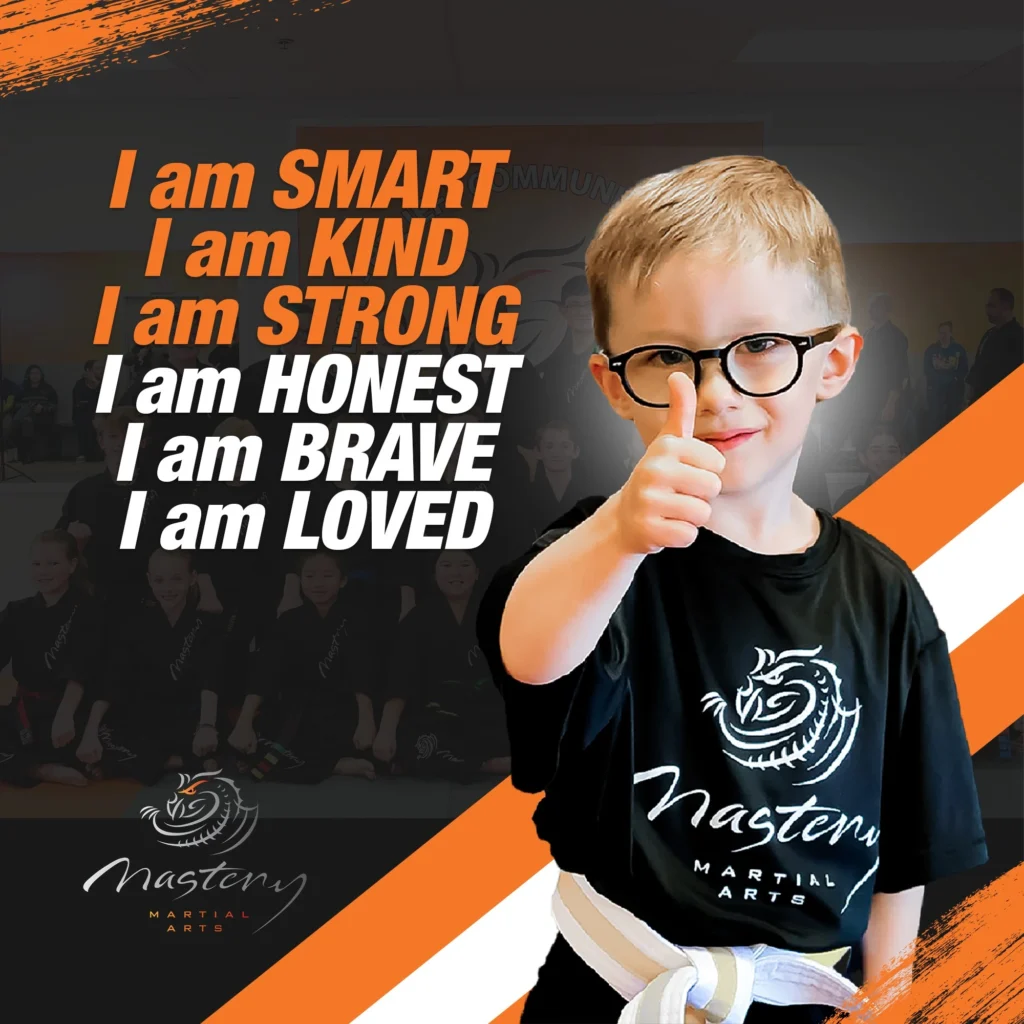
Why Mastery Martial Arts is the Best Choice for Your Child's Development
While many martial arts schools offer basic karate instruction, Mastery Martial Arts stands apart through its comprehensive approach to child development and unwavering commitment to each student's success. Understanding what makes a martial arts program truly exceptional helps parents make informed decisions about their children's development opportunities.
Age-Appropriate Curriculum and Developmental Understanding
Mastery Martial Arts recognizes that children's physical, emotional, and cognitive development occurs in stages, and their curriculum reflects this understanding. Rather than using a one-size-fits-all approach, programs are carefully designed to match children's developmental capabilities and learning styles at each age.
Preschool programs focus on basic motor skills, following directions, and social interaction through fun, game-based activities. Elementary-age children engage in more structured technique learning while developing focus and self-discipline. Teenage programs incorporate advanced techniques, leadership opportunities, and character development tailored to address the unique challenges of adolescence.
This developmental approach ensures that children are neither overwhelmed by expectations beyond their capabilities nor bored by activities that fail to challenge their growing abilities. Each child progresses at their optimal pace while building confidence through age-appropriate achievements.
Experienced, Child-Focused Instructors
The quality of instruction makes the difference between a positive, transformative experience and a frustrating, potentially harmful one. Instructors at Mastery Martial Arts are not only skilled martial artists but also trained educators who understand child psychology, learning differences, and effective teaching strategies.
Every instructor undergoes extensive training in working with children, including recognizing learning differences, managing classroom behavior, and adapting instruction to meet individual needs. They understand that some children learn through visual demonstration, others through verbal explanation, and still others through hands-on practice, and they adjust their teaching accordingly.
The instructors' patience, encouragement, and genuine care for each student's success create an environment where children feel safe to take risks, make mistakes, and grow. This supportive approach is particularly important for children who may have had negative experiences in other activities or who struggle with confidence issues.
Individual Progress Tracking and Personalized Attention
Unlike large group activities where individual children can get lost in the crowd, Mastery Martial Arts maintains detailed records of each student's progress, challenges, and achievements. Instructors know every child's name, understand their unique strengths and areas for improvement, and provide personalized feedback and encouragement.
This individual attention ensures that no child falls behind or becomes frustrated with their progress. Advanced students receive additional challenges to maintain their engagement, while those who need extra support receive the help they need to succeed. The result is a program where every child experiences success and continued growth.
Regular progress evaluations help parents understand their child's development and provide specific strategies for supporting continued improvement at home. This partnership between instructors and parents maximizes the benefits of martial arts training and ensures consistent reinforcement of positive values and behaviors.
Positive Reinforcement and Character Development Focus
The approach to discipline and behavior management at Mastery Martial Arts emphasizes positive reinforcement and character development rather than punishment or criticism. Children learn appropriate behavior through clear expectations, consistent modeling, and recognition of positive choices.
The character development curriculum addresses real-world challenges children face, from peer pressure and bullying to academic stress and family conflicts. Students learn practical strategies for making good decisions, standing up for their values, and treating others with respect and kindness.
This focus on character development extends beyond the dojo through community service projects, leadership opportunities, and family involvement activities. Children learn that martial arts skills come with the responsibility to help others and contribute positively to their communities.
Safe, Supportive Environment for All Children
Safety is paramount at Mastery Martial Arts, encompassing both physical safety and emotional well-being. The facility is designed with appropriate equipment, proper spacing, and safety protocols that protect children during training while allowing them to challenge themselves appropriately.
Equally important is the emotional safety created through zero tolerance for bullying, put-downs, or exclusionary behavior. Every child is welcomed and valued regardless of their natural athletic ability, learning differences, or background. This inclusive environment allows children to focus on their own growth without fear of judgment or ridicule.
The supportive atmosphere extends to families as well, creating a community where parents can connect with others who share similar values and goals for their children's development. Many families form lasting friendships through their involvement in the Mastery Martial Arts community.
Proven Track Record of Success
The true measure of any program's effectiveness is the long-term success of its students. Mastery Martial Arts has a documented history of helping children overcome challenges, achieve their goals, and develop into confident, capable young adults.
Former students consistently report that the skills they learned at Mastery Martial Arts - discipline, perseverance, respect, and confidence - contributed significantly to their academic success, career achievements, and personal relationships. Many return as adult instructors, continuing the cycle of positive influence and mentorship.
Parent testimonials consistently highlight improvements in their children's behavior, academic performance, and overall well-being after beginning training at Mastery Martial Arts. These real-world results demonstrate the program's effectiveness in achieving its goals of comprehensive child development.
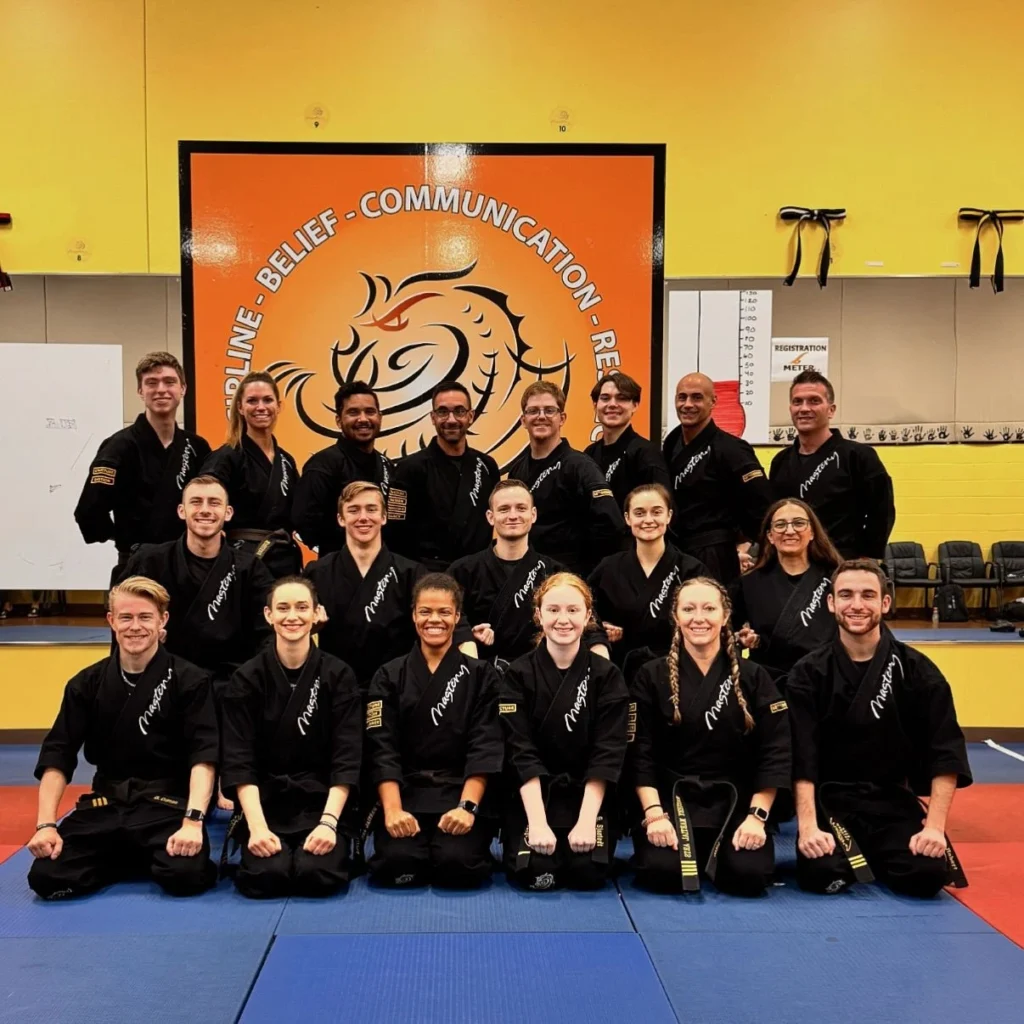
The Science Behind Martial Arts Development: Research-Backed Benefits
The benefits of martial arts training for children aren't just anecdotal - they're supported by extensive scientific research from universities and medical institutions worldwide. Understanding the research behind these benefits helps parents make informed decisions about their children's activities and provides confidence in the value of martial arts training.
Neuroscience Research on Martial Arts and Brain Development
Recent neuroscience research has revealed fascinating insights into how martial arts training affects brain development in children. Studies using brain imaging technology show that children who practice martial arts develop enhanced connectivity between different brain regions, particularly areas responsible for attention, emotional regulation, and motor control.
Dr. Kimberley Lakes from the University of California, Irvine, conducted groundbreaking research demonstrating that martial arts training improves executive function in children - the mental skills that include working memory, flexible thinking, and self-control. Her studies showed significant improvements in children's ability to focus attention, resist distractions, and regulate their behavior after participating in martial arts programs.
The bilateral coordination required in martial arts techniques stimulates communication between the brain's hemispheres, enhancing overall cognitive integration. This improved brain connectivity benefits academic performance, particularly in areas requiring complex thinking and problem-solving skills.
Academic Performance and Attention Studies
Multiple research studies have documented the positive impact of martial arts training on academic performance and classroom behavior. A comprehensive study published in the Journal of Applied School Psychology found that children participating in martial arts programs showed significant improvements in:
•Sustained attention and focus during academic tasks
•Reduced hyperactivity and impulsive behavior in classroom settings
•Improved working memory and information processing speed
•Enhanced self-regulation and emotional control
•Better social skills and peer relationships
These improvements were particularly pronounced in children with attention difficulties, suggesting that martial arts training may be especially beneficial for children with ADHD or other attention-related challenges.
Physical Development and Motor Skills Research
Research published in the International Journal of Environmental Research and Public Health demonstrates that martial arts training provides superior motor skill development compared to many other physical activities. The study found that children participating in martial arts programs showed significant improvements in:
•Balance and postural control
•Bilateral coordination and cross-lateral movement patterns
•Fine and gross motor skill integration
•Spatial awareness and proprioception
•Reaction time and movement efficiency
These physical improvements contribute to better performance in academic tasks requiring fine motor skills, such as handwriting, as well as enhanced safety and confidence in physical activities.
Social and Emotional Development Studies
Extensive research has documented the social and emotional benefits of martial arts training for children. Studies published in peer-reviewed journals consistently show that children who participate in quality martial arts programs develop:
•Increased self-esteem and confidence
•Improved emotional regulation and stress management
•Enhanced empathy and prosocial behavior
•Better conflict resolution skills
•Reduced aggression and improved impulse control
Particularly significant is research showing that martial arts training helps children develop intrinsic motivation - the drive to improve and succeed that comes from within rather than external rewards or pressure. This intrinsic motivation proves valuable in academic settings and contributes to lifelong learning and achievement.
Comparison to Other Activities
Research comparing martial arts to other childhood activities reveals unique advantages of martial arts training. While team sports provide physical benefits and social interaction, they often create competitive pressure that can be detrimental to some children's self-esteem and motivation.
Academic enrichment activities support intellectual development but typically lack the physical and social components essential for comprehensive child development. Arts and music programs offer creative expression but may not provide the structured discipline and character development found in martial arts.
Martial arts training uniquely combines physical, mental, emotional, and social development in a single activity, making it one of the most comprehensive approaches to child development available. The research consistently demonstrates that children who participate in quality martial arts programs develop skills and characteristics that serve them throughout their lives, from improved academic performance to enhanced career success and personal relationships.
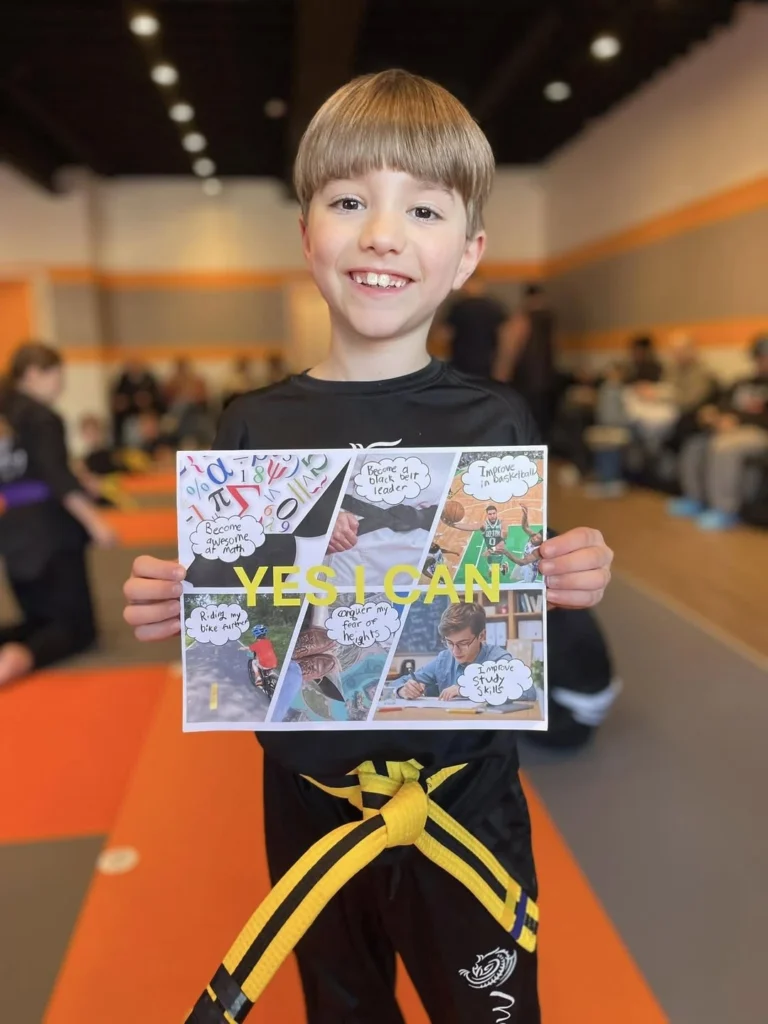
What Parents Can Expect: Your Child's Journey at Mastery Martial Arts
Understanding what to expect from your child's martial arts journey helps set realistic expectations and maximizes the benefits of training. Every child's experience is unique, but there are common patterns and milestones that most families observe as their children progress through their martial arts development.
The First Class Experience
Your child's first free karate class at Mastery Martial Arts is carefully designed to be welcoming, non-intimidating, and immediately engaging. New students are paired with experienced classmates who serve as buddies, helping them feel comfortable and included from the very beginning.
The initial class focuses on basic movements, simple techniques, and fun activities that give children a taste of martial arts training without overwhelming them. Instructors pay special attention to new students, ensuring they understand expectations and feel successful in their first attempts at martial arts techniques.
Most children leave their first class excited and eager to return. However, some naturally shy or cautious children may need a few classes to feel completely comfortable. This is perfectly normal, and instructors are experienced in helping all personality types adjust to the dojo environment at their own pace.
Progress Timeline and Developmental Milestones
While every child develops at their own pace, most families observe noticeable changes within the first few weeks of training. Initial improvements typically include better listening skills, improved ability to follow directions, and increased willingness to try new challenges.
Within the first month, parents often notice improvements in their child's confidence, particularly in social situations. Children begin using martial arts terminology and demonstrating techniques at home, showing pride in their new skills and knowledge.
By the three-month mark, the character development aspects of training become more apparent. Children demonstrate improved self-control, better conflict resolution skills, and increased respect for authority figures. Academic improvements often become noticeable during this period as well.
Long-term benefits continue to develop over months and years of consistent training. The discipline, perseverance, and goal-setting skills learned through martial arts become deeply ingrained character traits that influence all areas of the child's life.
Communication and Parent Involvement
Mastery Martial Arts maintains open communication with parents throughout their child's training journey. Regular progress reports keep parents informed about their child's development, areas of strength, and opportunities for continued growth.
Instructors are always available to discuss any concerns or questions parents may have about their child's progress or behavior. This partnership approach ensures that the positive lessons learned in the dojo are reinforced at home and in other settings.
Parents are encouraged to observe classes and participate in special events, creating opportunities to see their child's progress firsthand and connect with other families in the martial arts community. Many parents report that watching their child's classes becomes one of their favorite parts of the week.
Supporting Your Child's Development at Home
While the formal training occurs in the dojo, parents play a crucial role in supporting their child's martial arts development at home. Simple strategies can significantly enhance the benefits of training and accelerate your child's progress.
Encouraging practice at home helps reinforce techniques and builds confidence. Even a few minutes of practice each day can make a significant difference in your child's skill development and retention of material learned in class.
Discussing the character lessons learned in martial arts helps children apply these principles to everyday situations. When conflicts arise with siblings or challenges occur at school, parents can reference martial arts principles like respect, perseverance, and self-control to guide their child's responses.
Celebrating achievements and progress, no matter how small, reinforces the positive aspects of martial arts training and maintains your child's motivation and enthusiasm for continued learning.
Addressing Common Parent Concerns
Many parents have initial concerns about martial arts training that are quickly resolved once they observe their child's experience. Concerns about safety are addressed through proper supervision, age-appropriate techniques, and emphasis on control and respect rather than aggression.
Parents worried about their child's natural shyness or lack of athletic ability often discover that martial arts training is particularly beneficial for these children. The individual focus and supportive environment help shy children build confidence while allowing less naturally athletic children to develop skills at their own pace.
Some parents worry that martial arts training might make their child more aggressive or violent. Research and experience consistently demonstrate the opposite effect - children who learn martial arts develop better self-control and are less likely to engage in aggressive behavior than their peers who don't participate in martial arts training.
Getting Started: Free Karate Classes at Mastery Martial Arts
The decision to enroll your child in martial arts training is an important one, and Mastery Martial Arts makes it easy for families to experience the benefits firsthand before making any commitment. The comprehensive free trial opportunity allows both parents and children to fully understand what makes this program special and how it can benefit your family.
Free 1-on-1 Introductory Lesson
Your child's journey begins with a personalized, one-on-one introductory lesson with one of Mastery Martial Arts' experienced instructors. This individual attention ensures that your child receives focused guidance and feels completely comfortable before joining group classes.
During this private lesson, the instructor will assess your child's current physical abilities, learning style, and personality to ensure the best possible experience in future classes. Your child will learn basic techniques, experience the respectful dojo environment, and get a taste of what martial arts training involves.
This individual introduction is particularly valuable for shy children, those with previous negative experiences in group activities, or children with special needs who may benefit from extra attention and customized instruction. The one-on-one format allows the instructor to adapt their teaching style to your child's specific needs and preferences.
Parents are welcome to observe this introductory lesson, ask questions, and discuss their goals and expectations for their child's development. This open communication ensures that everyone is aligned and working toward the same objectives from the very beginning.
Two Weeks of Unlimited Classes
Following the introductory lesson, your child is invited to participate in two full weeks of unlimited classes at no cost. This extended trial period provides ample opportunity to experience the full range of benefits that martial arts training offers.
During these two weeks, your child will participate in regular group classes, interact with other students, and begin learning the fundamental techniques and principles that form the foundation of martial arts training. They'll experience the structured learning environment, the supportive community, and the positive reinforcement that makes Mastery Martial Arts special.
This extended trial period is crucial because the benefits of martial arts training develop over time. While some improvements may be noticeable immediately, others require consistent participation to become apparent. Two weeks provides sufficient time for both parents and children to make an informed decision about continuing with the program.
No Pressure, No Commitment
The free trial opportunity at Mastery Martial Arts comes with absolutely no pressure or obligation to continue. The goal is simply to provide families with the information and experience they need to make the best decision for their child's development.
There are no high-pressure sales tactics, no requirements to sign contracts during the trial period, and no hidden fees or obligations. The quality of the program and the benefits it provides speak for themselves, and families are free to make their own decisions based on their own experience and observations.
This no-pressure approach reflects the values and philosophy of Mastery Martial Arts - respect for families' decision-making processes and confidence in the quality of their program. The focus remains on providing the best possible experience for children rather than pressuring parents into commitments they're not ready to make.
What to Bring and Expect
Getting started with your free trial is simple and straightforward. Your child should wear comfortable, loose-fitting clothing that allows for easy movement - athletic wear or casual clothes work perfectly. No special equipment or uniforms are required for the trial period.
Arrive a few minutes early for the first visit to complete any necessary paperwork and allow your child time to observe the dojo environment before participating. The friendly staff will welcome you and your child, answer any questions, and ensure that everyone feels comfortable and prepared.
Most children are excited and eager to begin their martial arts journey, but it's normal for some to feel nervous about trying something new. The experienced instructors at Mastery Martial Arts are skilled at helping children feel comfortable and confident, regardless of their initial anxiety level.
Easy Scheduling Process
Scheduling your child's free trial is quick and convenient. Simply contact Mastery Martial Arts by phone or through their website to arrange your child's introductory lesson and discuss the best class times for your family's schedule.
The flexible scheduling options accommodate busy family schedules, with classes available throughout the week at various times. The staff will work with you to find times that fit your schedule and ensure that your child can participate consistently during the trial period.
Don't let this opportunity pass by - the sooner your child begins their martial arts journey, the sooner they can start experiencing the life-changing benefits of comprehensive character development, improved confidence, and enhanced physical and mental capabilities that will serve them throughout their lives.
Conclusion: Give Your Child the Complete Development They Deserve
As a parent, you have the power to provide your child with opportunities that will shape their character, confidence, and capabilities for life. Free karate classes at Mastery Martial Arts offer something truly unique in today's world - a comprehensive approach to child development that addresses emotional intelligence, social skills, intellectual growth, and physical wellness in a single, integrated program.
The four pillars of development we've explored - emotional regulation and confidence building, social skills and leadership development, intellectual enhancement and focus improvement, and comprehensive physical development - work together to create well-rounded children who are prepared for success in all areas of life.
Unlike activities that focus on isolated skills or create competitive pressure that can damage self-esteem, martial arts training at Mastery Martial Arts builds children up while teaching them valuable life skills. The research is clear, the benefits are proven, and the results speak for themselves in the thousands of children who have transformed their lives through quality martial arts training.
Your child deserves more than just another activity to fill their schedule. They deserve an opportunity to develop their complete potential in an environment that values their individual growth, celebrates their achievements, and provides them with tools for lifelong success.
The experienced instructors at Mastery Martial Arts understand child development and are committed to helping every student succeed. The supportive community welcomes families from all backgrounds and creates lasting friendships built on shared values of respect, discipline, and mutual support.
Most importantly, you don't have to take our word for it. The free trial opportunity allows you and your child to experience these benefits firsthand, with no pressure and no obligation. You can see for yourself how martial arts training can transform your child's confidence, behavior, and overall development.
Take Action Today - Your Child's Future Starts Now
Don't let another day pass wondering what might be possible for your child's development. The opportunity to provide your child with comprehensive character development, improved confidence, and enhanced life skills is available right now through free karate classes at Mastery Martial Arts.
Schedule your child's Free 1-on-1 Introductory Lesson today and receive 2 weeks of unlimited classes at no cost. This limited-time opportunity provides everything you need to make an informed decision about your child's development while giving them a head start on building the skills and character traits that will serve them throughout their lives.
The children who start their martial arts journey today will be the confident, disciplined, and successful young adults of tomorrow. They'll be the ones who stand up for what's right, who persist through challenges, who treat others with respect, and who approach life with the confidence that comes from knowing they can handle whatever comes their way.
Your child's transformation begins with a single step - scheduling their free introductory lesson. Contact Mastery Martial Arts today to reserve your child's spot and take the first step toward unlocking their complete potential.
The investment you make in your child's character development today will pay dividends for the rest of their life. Don't wait - give your child the gift of comprehensive development through free karate classes at Mastery Martial Arts.
Contact Mastery Martial Arts now to schedule your child's free trial and discover why thousands of parents have chosen martial arts as the foundation for their children's success.
Ready to see the transformation for yourself? Call Mastery Martial Arts today or visit their website to schedule your child's Free 1-on-1 Introductory Lesson and claim your 2 weeks of unlimited classes. Your child's journey to confidence, discipline, and success starts with a single phone call.
Frequently Asked Questions About Free Karate Classes
Q: Are free karate classes really free, or are there hidden costs?
A: The free trial at Mastery Martial Arts includes a genuine 1-on-1 introductory lesson and two weeks of unlimited classes with no hidden fees, contracts, or obligations. This allows families to experience the full benefits before making any commitment.
Q: At what age can children participate in free karate classes?
A: Mastery Martial Arts offers age-appropriate programs for children starting as young as 3 years old through teenagers. Each program is specifically designed to match children's developmental capabilities and learning styles.
Q: Will karate make my child more aggressive or violent?
A: Research consistently shows the opposite effect. Children who participate in quality martial arts programs develop better self-control and are less likely to engage in aggressive behavior. The emphasis on respect, discipline, and conflict resolution actually reduces aggressive tendencies.
Q: How often should my child attend karate classes?
A: Most children benefit from attending classes 2-3 times per week for optimal skill development and character building. During the free trial period, children can attend unlimited classes to fully experience the program benefits.
Q: What should my child wear to their first free karate class?
A: Comfortable, loose-fitting clothing that allows for easy movement is perfect for the first class. Athletic wear or casual clothes work well. No special equipment or uniforms are required for the trial period.
Q: How long does it take to see improvements in my child's behavior and confidence?
A: Many parents notice initial improvements in focus and confidence within the first few weeks. Significant character development and behavioral improvements typically become apparent within 2-3 months of consistent training.
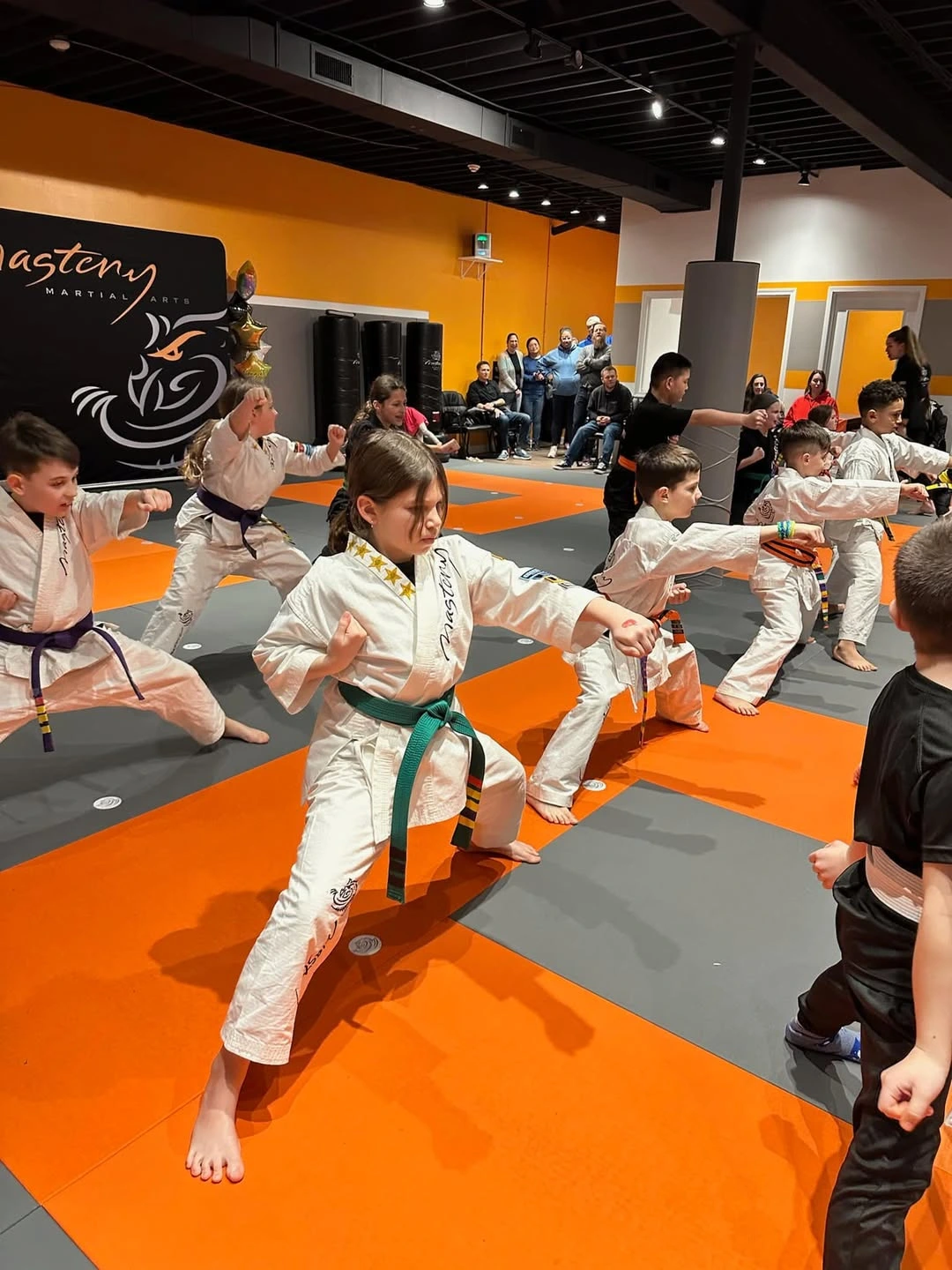
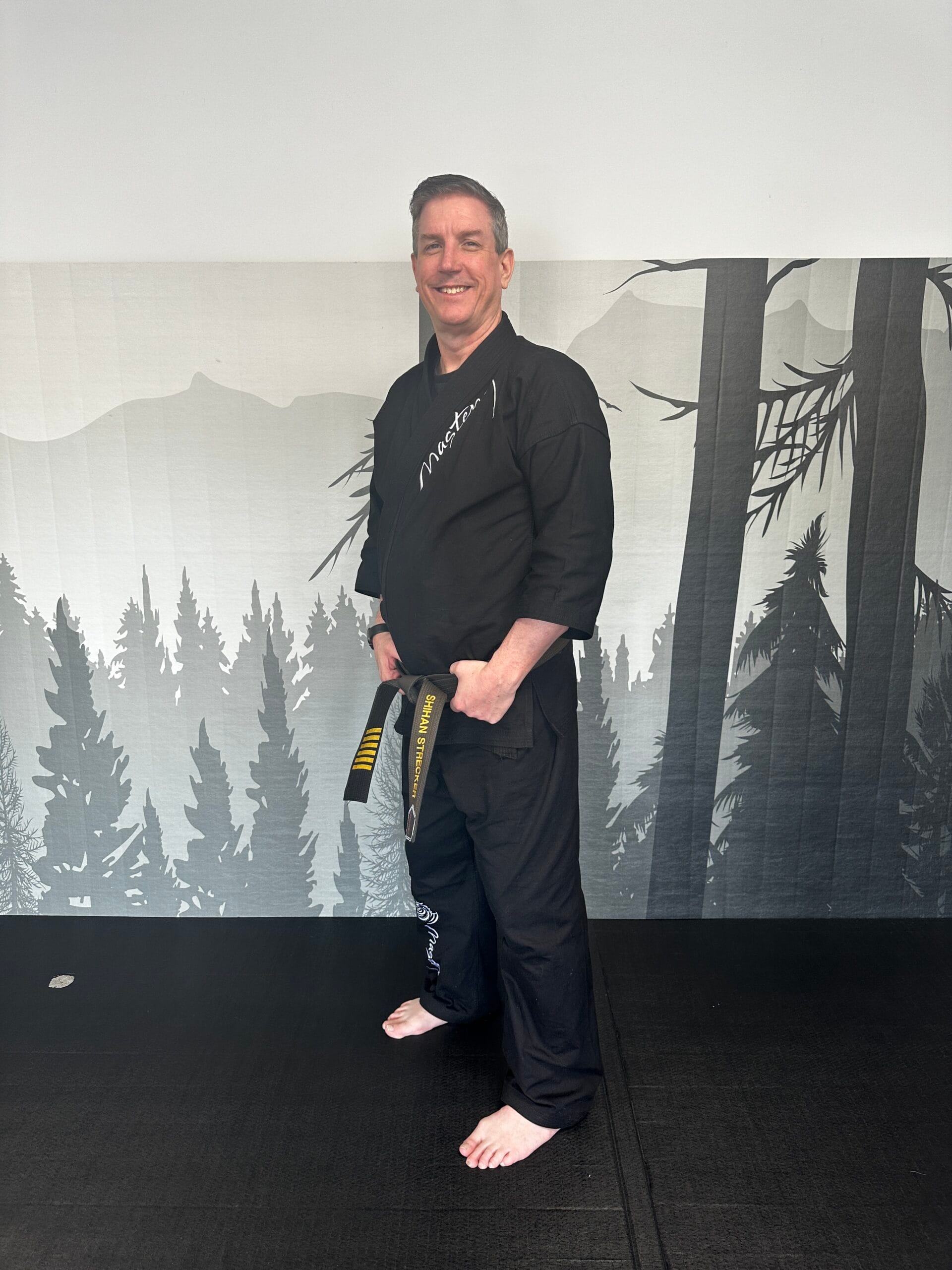
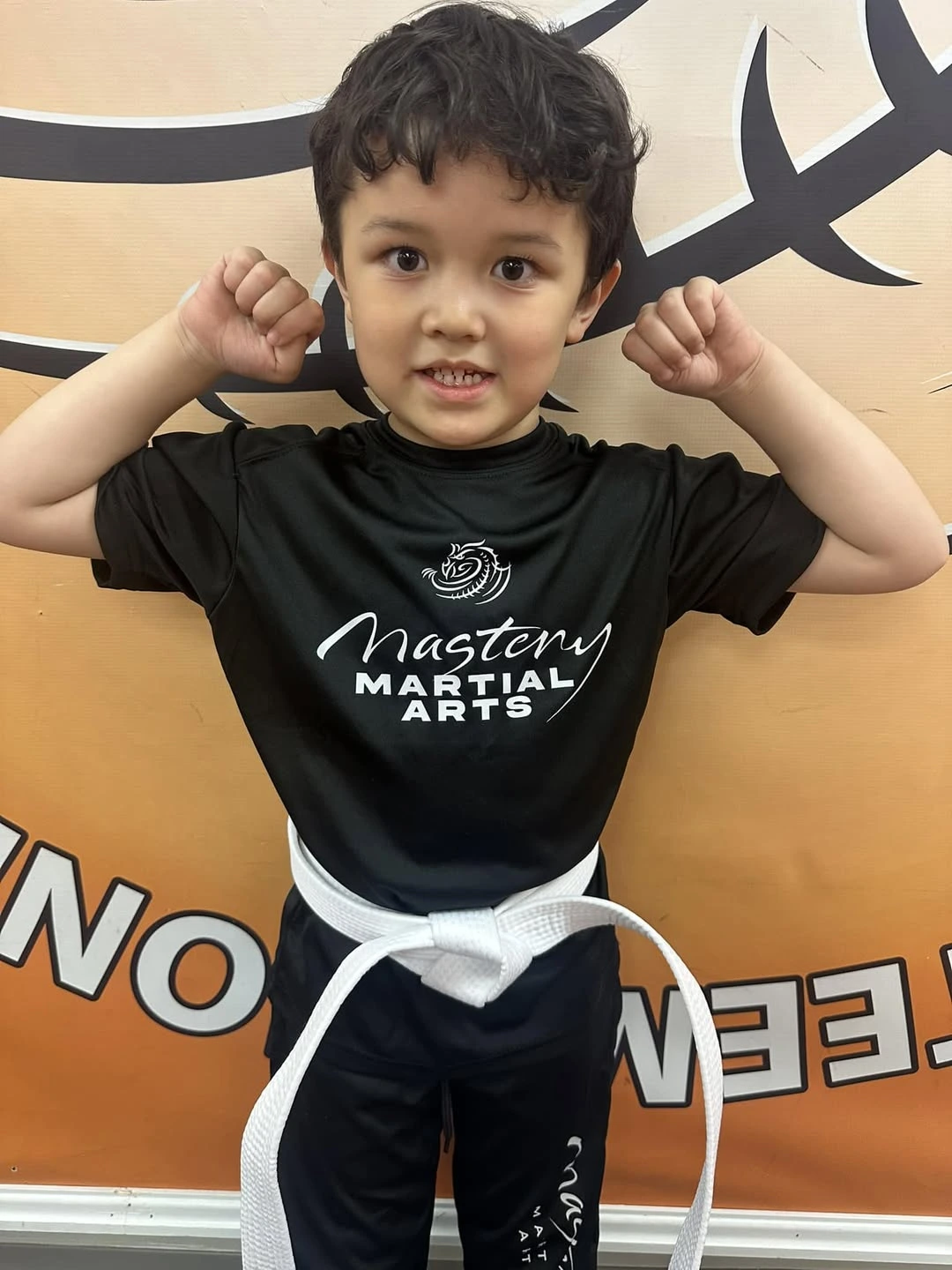
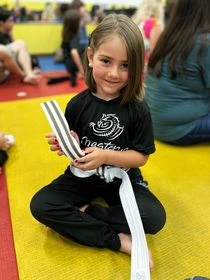
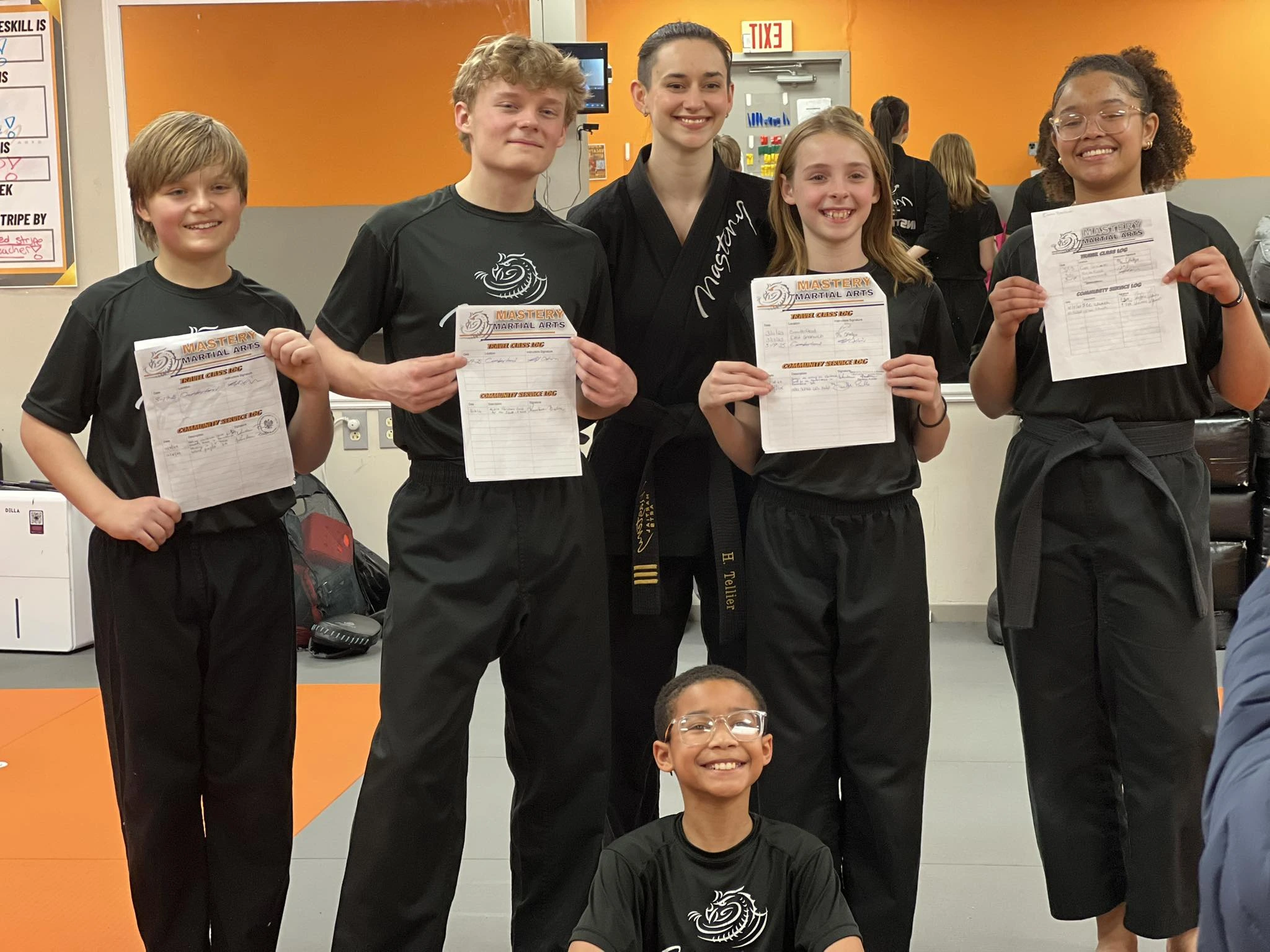
0 Comments